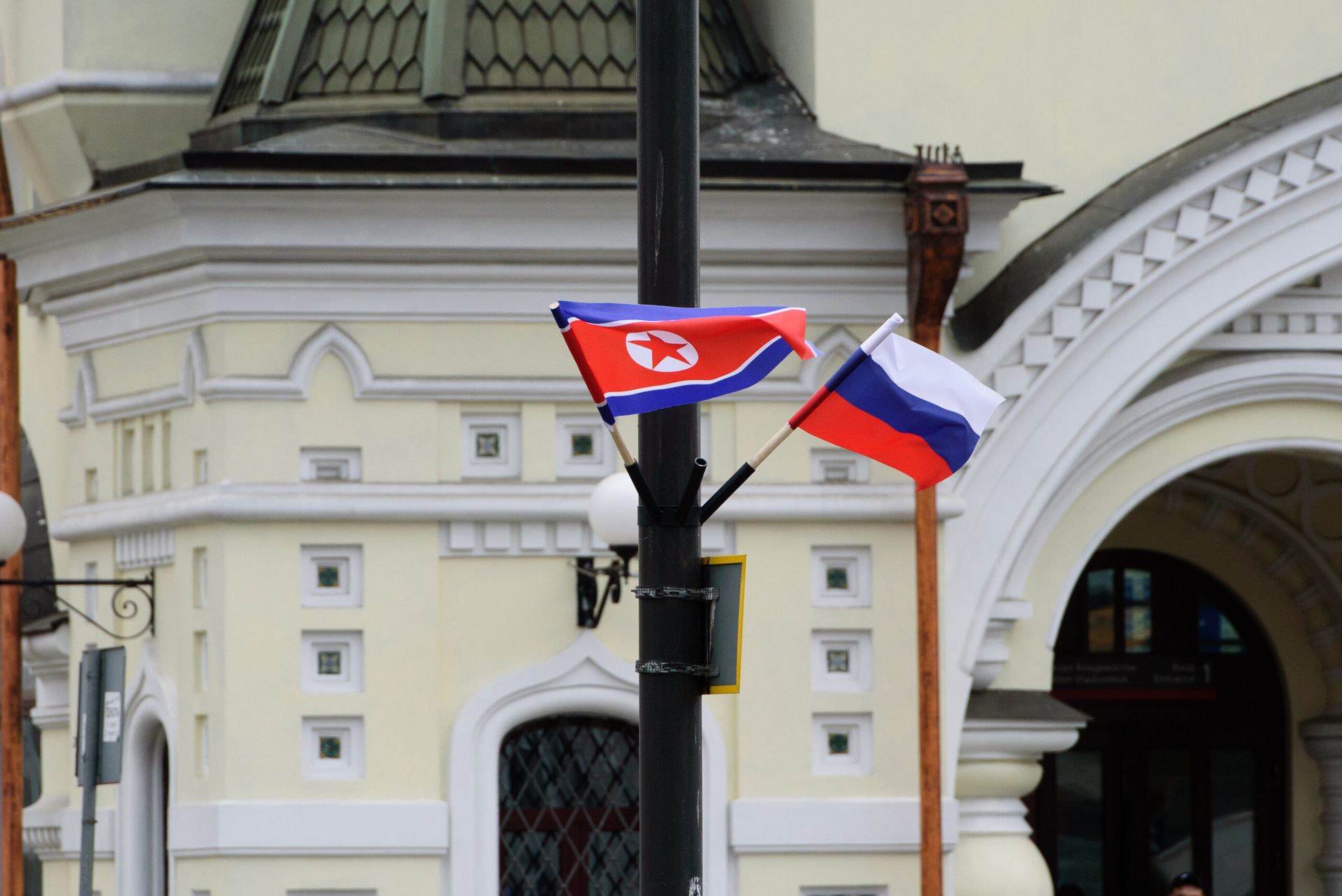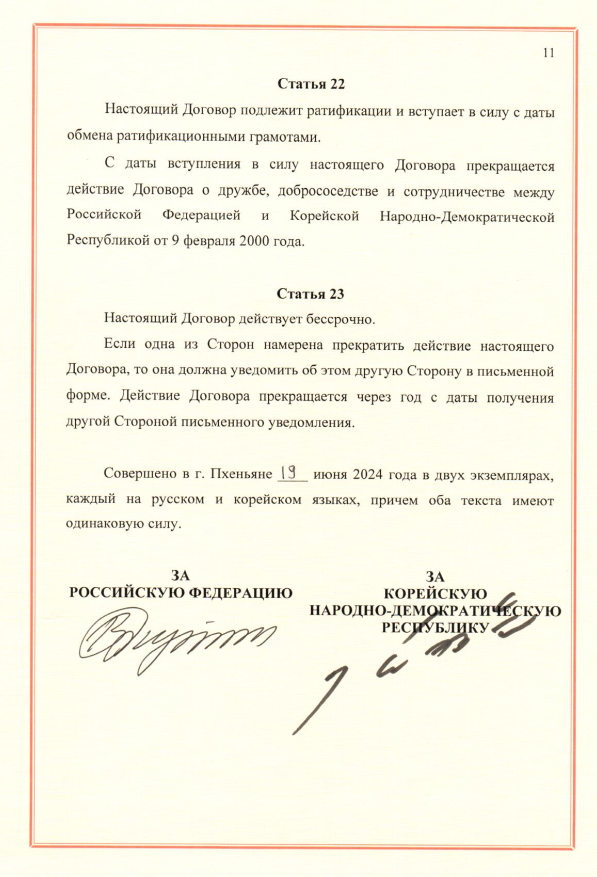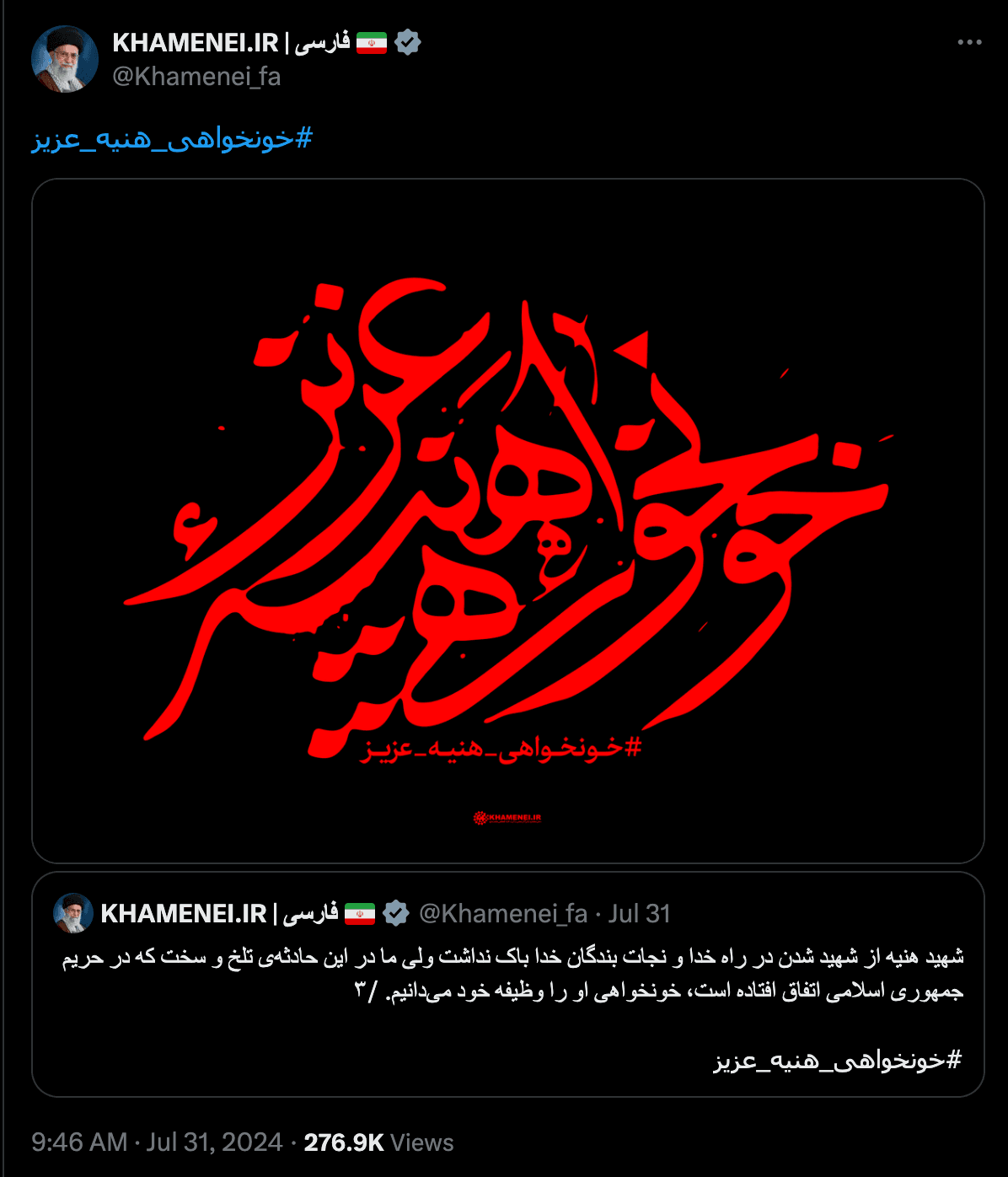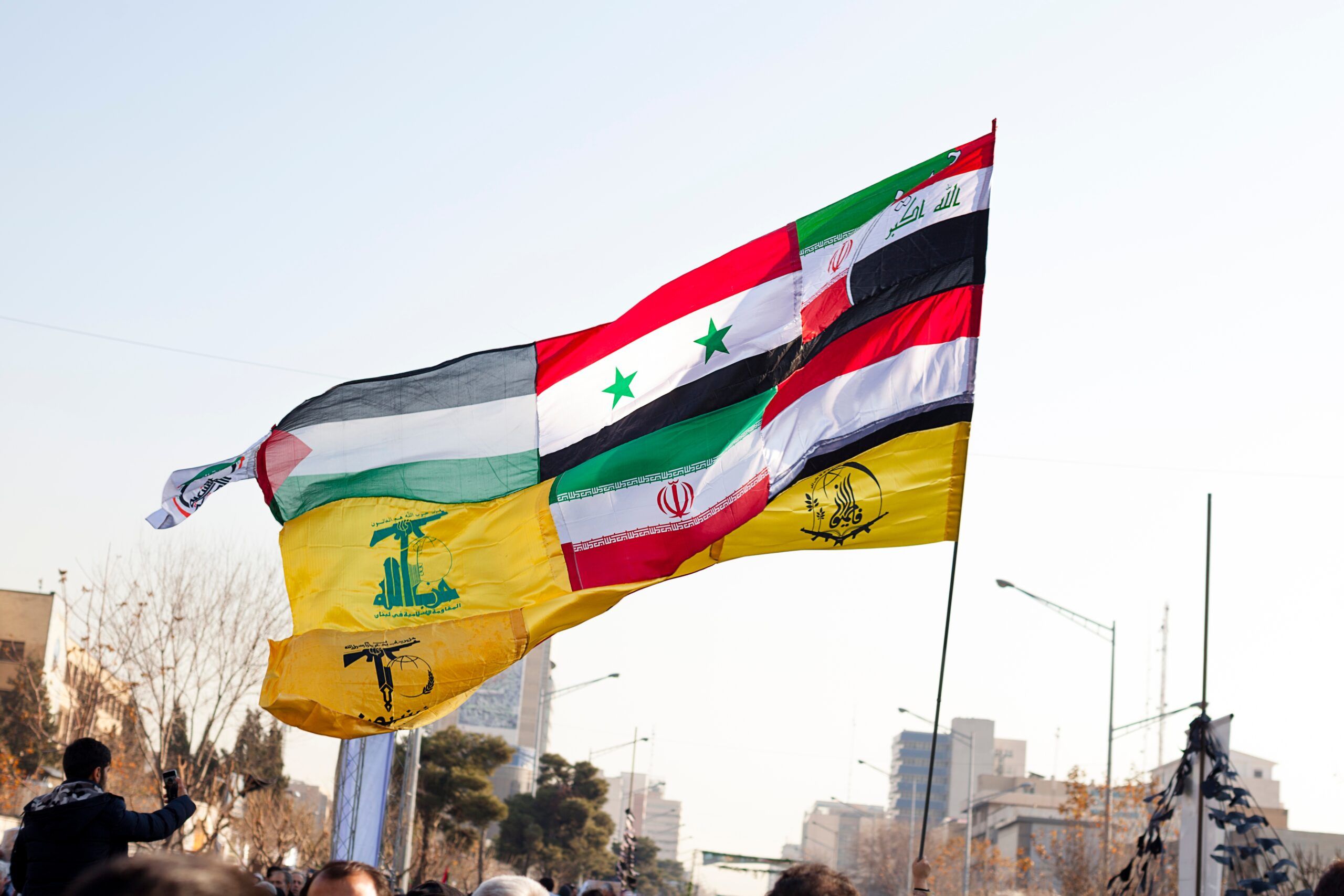Moscow and Pyongyang: Technology, Militarization, and a Shared Defiance of the West

The relationship between Russia and North Korea has undergone a significant transformation in recent years, marked by deepening collaboration in technology and space exploration. The signing of the Strategic Partnership Treaty in December 2024 formalized this alliance, providing a legal and operational framework for joint research in advanced fields, including space exploration, artificial intelligence (AI), peaceful nuclear energy, and information technology (IT). Although North Korea’s latest missile test has not been explicitly linked to Russian assistance, its design resembles a previously tested hypersonic rocket. Notably, this test coincided with U.S. Secretary of State Antony Blinken’s visit to Asia, during which he warned of Russia’s role in bolstering North Korea’s technological and military capabilities.

The last page of the treaty signed by Kim Jong Un and Vladimir Putin (Source: Official publication of legal acts of Russia)
The Strategic Partnership Treaty serves as the cornerstone of Russia-North Korea collaboration. Article 10 outlines cooperation across multiple fields, including science, technology, space, biology, AI, IT, and peaceful nuclear energy. Article 8 emphasizes joint initiatives to bolster defense capabilities and ensure regional and international security, while Article 18 focuses on managing internet usage, aiming to prevent the use of digital platforms to undermine the dignity and reputation of sovereign states. North Korean media lauded the treaty as a key step toward establishing an independent multipolar world order, though it avoided direct references to space industry cooperation, instead highlighting collaboration in telecommunications and digital technology.
The partnership gained momentum during the September 2023 summit at Russia’s Vostochny Cosmodrome, where President Vladimir Putin pledged support for North Korea’s satellite ambitions. Putin confirmed that North Korean leader Kim Jong Un’s visit to the cosmodrome was driven by a keen interest in rocket technology. This promise materialized in November 2023 when North Korea successfully launched its first military reconnaissance satellite. While Pyongyang credited this achievement to domestic expertise, external analysts attribute it in part to Russian technical assistance.
North Korea has framed its space program as a necessary response to the increasing militarization of space by the United States, South Korea, Japan, and private companies, specifically mentioned SpaceX. Pyongyang accuses these entities of escalating regional tensions and pursuing offensive objectives under the guise of defense. Officials from North Korea’s National Aerospace Technology Administration have criticized South Korea’s spy satellite programs and Japan’s plans to integrate reconnaissance systems into U.S.-led missile warning networks in one of the November’s KCNA articles. These initiatives, Pyongyang asserts, pose direct threats to its sovereignty and necessitate its development of military reconnaissance satellites to safeguard national security.
The goals of the Russia-North Korea collaboration in space technology are multifaceted. They aim to enhance military and defense capabilities through advanced reconnaissance systems, strengthen technical infrastructure for independent satellite development, and address gaps in missile guidance and early-warning systems. Russian contributions, including the provision of engineers, critical designs, and expertise in rocket propulsion and satellite payloads, have accelerated North Korea’s progress in these areas. Speculation persists that future cooperation may involve North Korean specialists receiving training at Russian facilities, such as the Vostochny Cosmodrome.
For North Korea, this partnership offers substantial benefits. Enhanced reconnaissance capabilities improve its ability to monitor regional military activities and strengthen missile targeting systems. Russian assistance has also enabled North Korea to overcome significant technological barriers, advancing its space program and solidifying its position as a player in global space initiatives. Domestically, these achievements bolster Kim Jong Un’s leadership, while internationally, they elevate North Korea’s status as a technologically capable nation.
However, this partnership has provoked significant concerns. The potential military applications of advanced space technologies pose serious risks to regional and global security. North Korea’s growing capabilities in satellite and missile technology, coupled with Russia’s assistance, challenge international sanctions and undermine non-proliferation norms. Neighboring countries, including South Korea and Japan, view this collaboration as a direct threat, raising fears of an arms race in the Asia-Pacific region.
The geopolitical implications of this alliance extend beyond space. Analysts suggest that Russia’s collaboration with North Korea strengthens its strategic position against the United States and its allies, while also disrupting efforts to maintain a demilitarized and cooperative outer space environment. This partnership highlights the broader realignment of global power dynamics, as Moscow and Pyongyang seek to counter Western influence through mutual support in technological and military advancements.
The evolving Russia-North Korea alliance underscores shared ambitions and mutual benefits but also introduces complex challenges to international security and stability. As Pyongyang’s space ambitions expand with Russian backing, the global community faces mounting pressure to address the broader consequences of this deepening collaboration.
The protracted war in Ukraine has increasingly strained Russia’s resources, driving it to seek new avenues of support and collaboration, even with rogue states like North Korea. As Moscow’s need for allies grows, so does its willingness to deepen ties with regimes that share its opposition to Western influence. This dynamic is likely to exacerbate Russia’s partnership with Pyongyang, particularly as their cooperation in military and technological domains expands. With North Korea potentially leveraging Russia’s desperation to extract more significant concessions, and Russia itself inching toward officially recognizing Pyongyang’s nuclear status, the trajectory of this alliance promises greater destabilization in the region and beyond. This growing alignment underscores a broader realignment in global power structures, one that poses mounting challenges to international security and diplomacy.
More from the author


